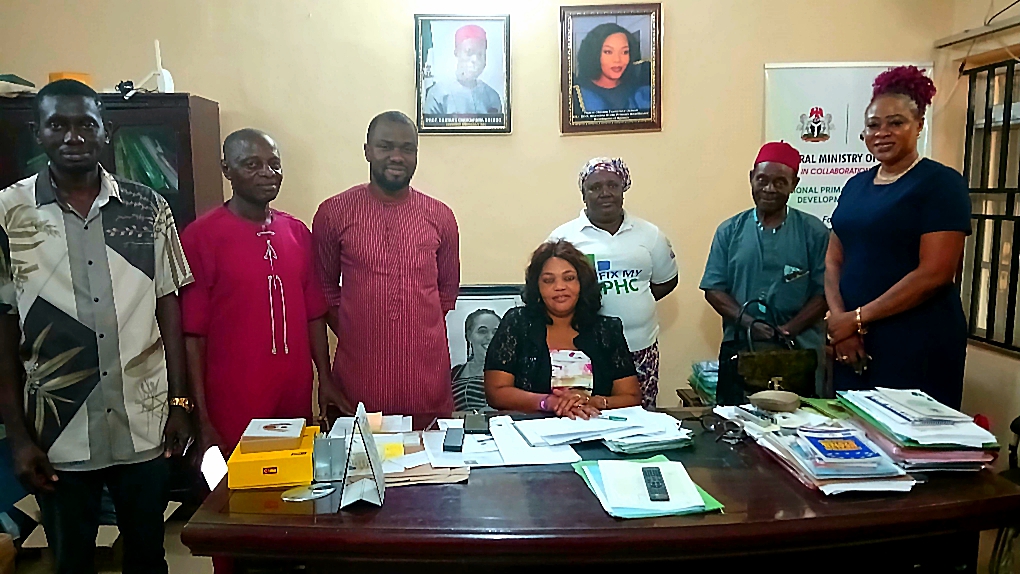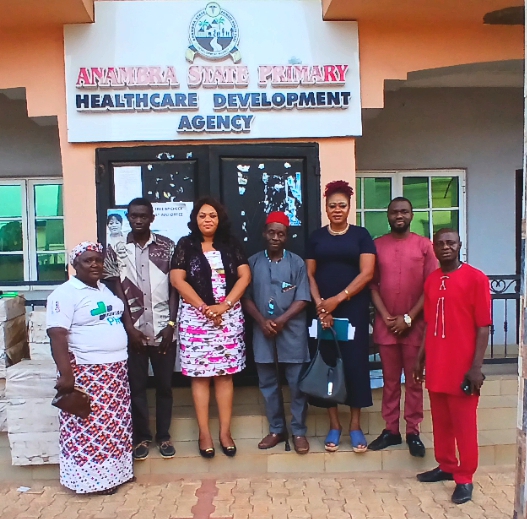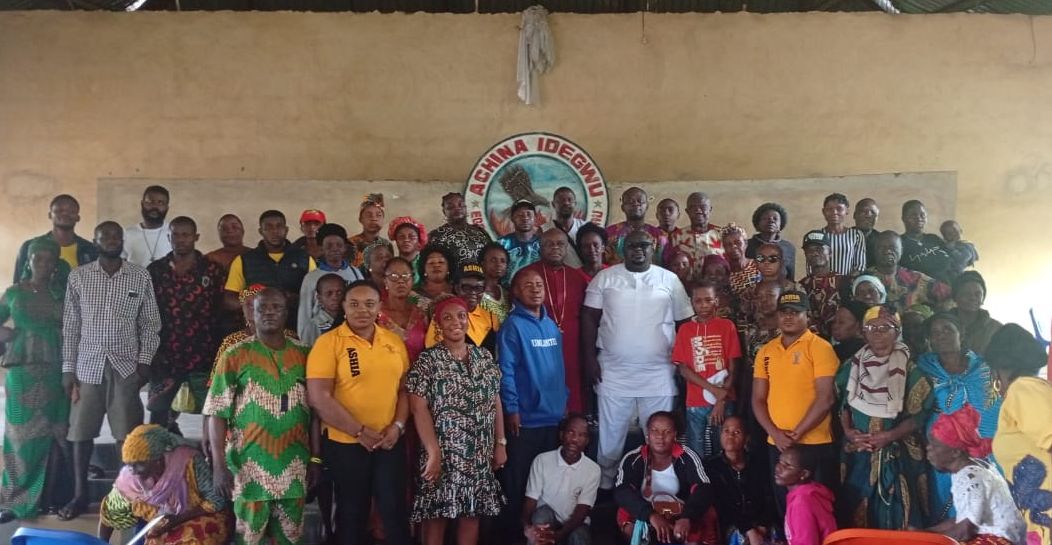Chinedum Elekwachi
SPARK II Project in Anambra state has called on State Primary Healthcare Development Agency (ASPHCDA) to ensure its Primary Health Centers (PHCs) implement Gender-Sensitive Business Plans.
COMEN IBP SPARK Consultant, Ugochi Ehiahuruike gave the advice during advocacy visit to the Executive Secretary, ASPHCDA, Mrs Chisom Uchem in her office.
The SPARK II Project, funded by the International Budget Partnership (IBP), is being co-implemented in the state by Justice Development and Peace Caritas (JDPC) Nnewi, Community Empowerment Network (COMEN), and Civil Rights Concern (CRC).
Ehiahuruike said the visit focused on exploring sustainable approaches and areas of co-creation that would strengthen the Agency’s efforts in driving systemic reforms for improved service delivery at primary healthcare centers, particularly in maternal and child health.
She said the SPARK Project is positioned to co-create and adopt review processes that assess PHC business plans against gender and quality benchmarks.
According to her, the Project is designed to promote gender and intersectionality, ensuring that vulnerable and marginalized groups identified under the project’s focus are fully accommodated.
Patient-centred care
“The project will support the development of Patient Feedback Tools to assess respectful and patient-centered care in PHCs, identify service gaps, and inform targeted training for health workers,” she noted.
Ehiahuruike further noted that the project will identify respected Traditional Birth Attendants (TBAs) and convene forums with PHC staff and pregnant women to strengthen trust and referral systems.
“In addition, the project will engage male gatekeepers and community leaders, sensitizing them and organizing sessions that encourage their support for women and girls in accessing maternal healthcare services.
“At the state level, SPARK Partners will drive accountability and evidence-based advocacy through baseline assessments including conducting assessments of selected PHCs and sharing validated findings with ASPHCDA and stakeholders for follow-up action.
“Media and awareness campaigns including leveraging radio programs, media briefings, and social awareness initiatives to stimulate demand for PHC services.
“Quarterly Feedback Platforms including facilitating review meetings with patients, WDCs, and healthcare workers, analyze service delivery data, and agree on actionable steps to improve care standards.
Gender sensitive toolkits
“The project will also develop practical gender-sensitive toolkits for WDCs and Officers-in-Charge (OICs) to strengthen their role in ensuring inclusive and quality healthcare service delivery,” she added.
The SPARK II Project Manager for JDPC Nnewi, Onyekachi Ololo, emphasized the critical leadership role of ASPHCDA and partners in co-creating, institutionalizing, and sustaining reforms within the primary healthcare system.

He further noted the importance of designing and rolling out patient-centered care training for midwives and nurses working in rural PHCs, with a strong focus on empathy, gender, and cultural sensitivity, complemented by continuous coaching and direct feedback from women and girls.
Onyekachi highlighted the urgency of facilitating the adoption and implementation of revised WDC composition guidelines in collaboration with Local Government Authorities, which will enable the reconstitution of WDCs in line with national minimum standards.
This, he said, is crucial for ensuring stronger women’s representation, participation, and leadership in PHC governance.
To further strengthen women’s voices, Onyekachi underscored the need for capacity-building workshops that promote women’s leadership within WDCs.
Maternal health champions
He also advocated for the training and deployment of maternal health champions who would support pregnant women in accessing timely care at PHCs.
Onyekachi called on the Agency to adopt and mainstream gender-sensitive PHC business plans across focal facilities.
He urged the Agency to facilitate staff training and retraining on patient-centered care with particular attention to maternal and child health, while also reconstituting WDCs in partnership with LGAs using the revised guidelines to promote stronger women’s participation in governance structures.
He further encouraged ASPHCDA to scale up trust-building mechanisms between PHCs, TBAs, and community leaders in order to reduce maternal health risks and eliminate delays in seeking care.
Finally, he emphasized the importance of ASPHCDA ensuring that the gains of the SPARK II interventions are sustained beyond the life cycle of the project.
Experiences from community reps
WDC and COMEN members — Ideh Godwin Eze, Vitus Oraegbunam, and Ogoamaka Atuenyi, shared experiences from their Health Promotion Campaigns of the SPARK Project.
They reported that community members are showing increasing interest in PHC utilization.
Specifically, Ogoamaka Atuenyi of Utuh testified that four pregnant women registered for antenatal care at their PHC following sensitization.
Responding, Executive Secretary, ASPHCDA, Mrs Chisom Uchem acknowledged that the work of the SPARK team complements the agency’s efforts to strengthen PHC service delivery, particularly in improving maternal and child health.
She welcomed the testimonies from COMEN and WDC representatives on the impact of state-supported free ANC and delivery programs.
Uchem also commended the SPARK Team for serving as watchdogs to ensure that government interventions reach the intended beneficiaries.
The ES further noted that Anambra State emerged first in the PHC Challenge of 2024 in the South East and overal first nationally, attributing this achievement to the combined efforts of stakeholders, including SPARK Partners.
She also reaffirmed ASPHCDA’s commitment to welcoming reports from SPARK partners to ensure accountability of OICs at PHCs.
“We are committed to promoting open data systems at PHCs to enhance transparency, community ownership, and improved service delivery.
“We are ready to work hand-in-hand with the SPARK II Project to scale up feedback mechanisms and institutionalize community-driven reforms,” she pledged.





